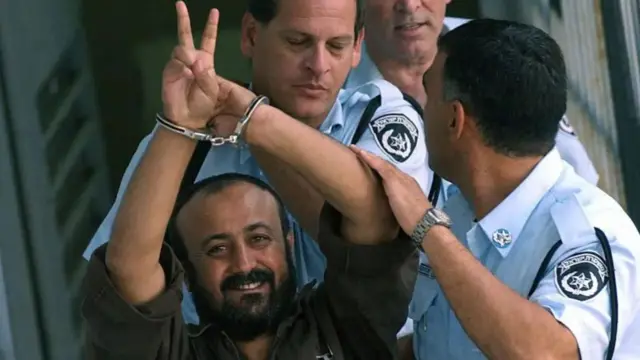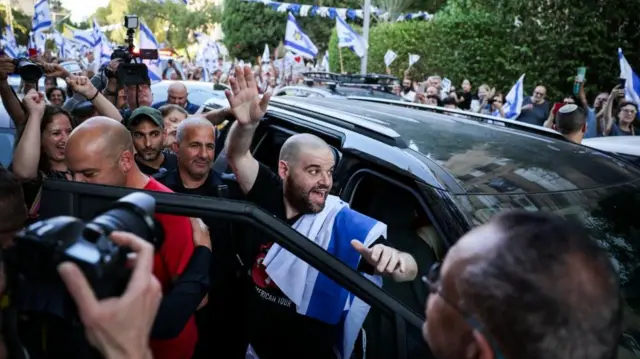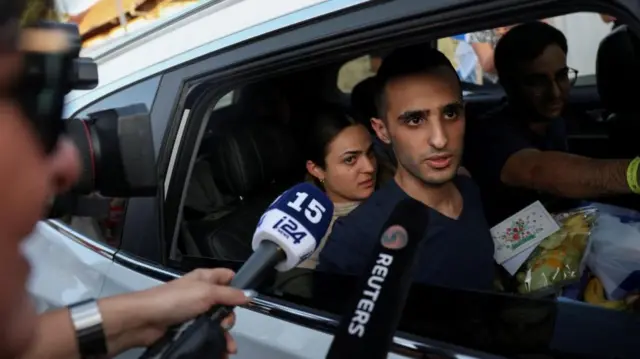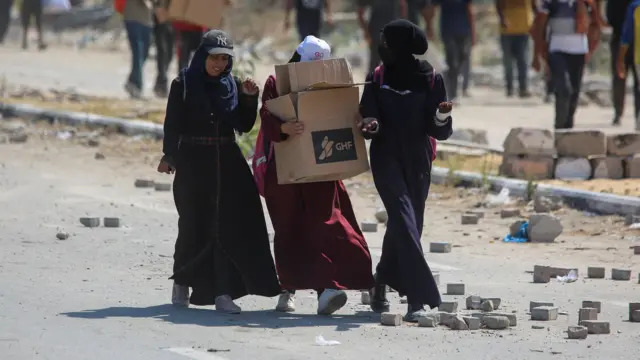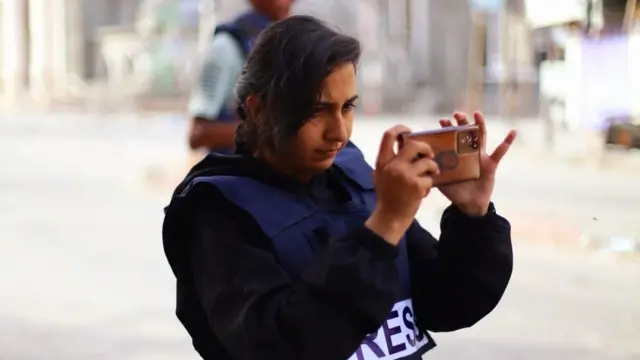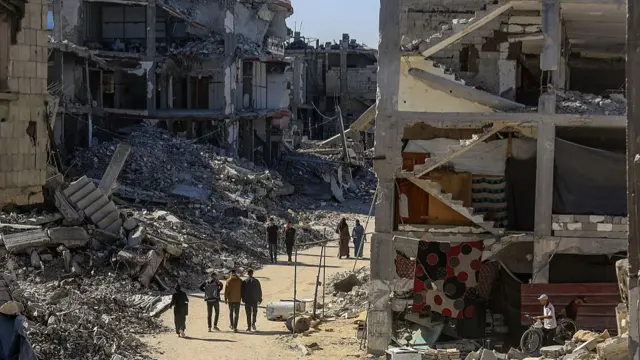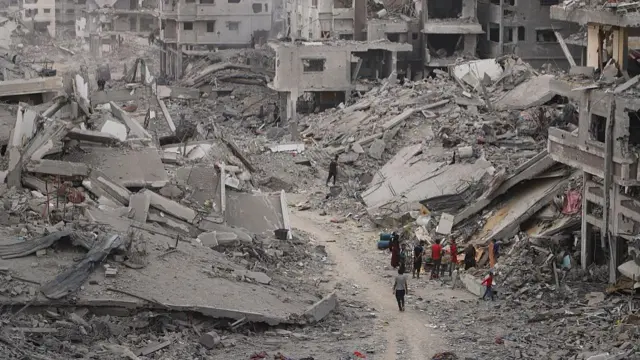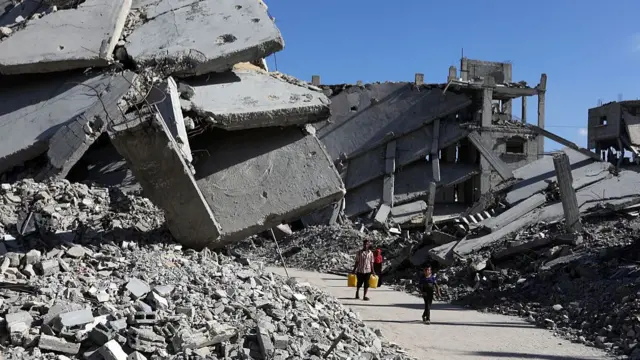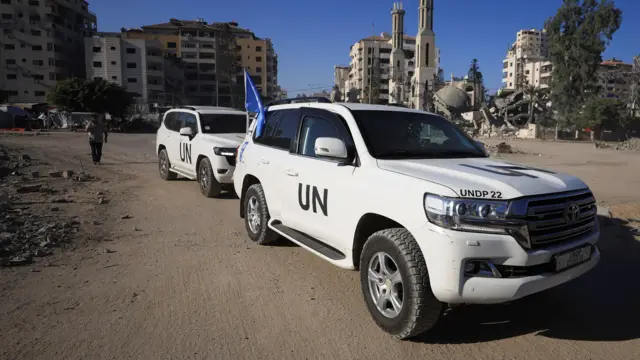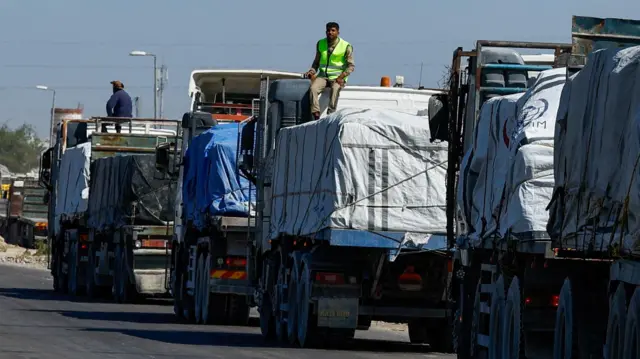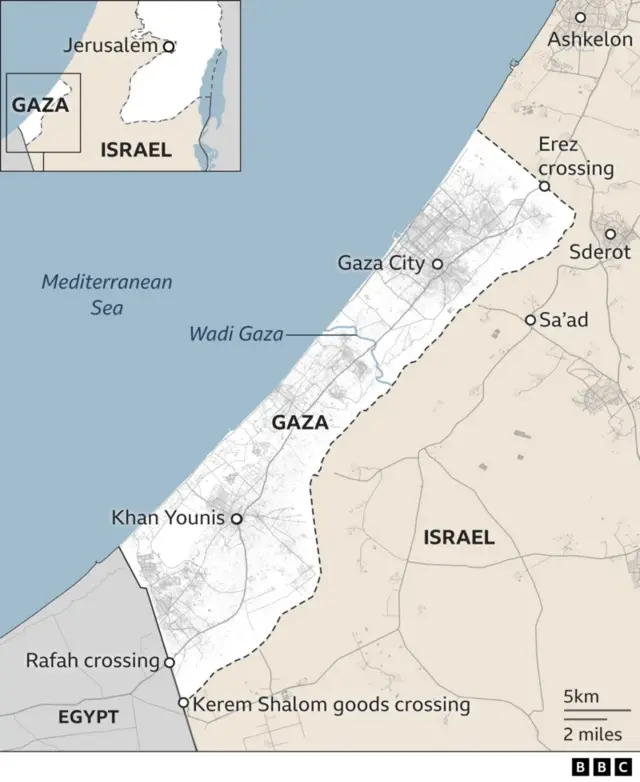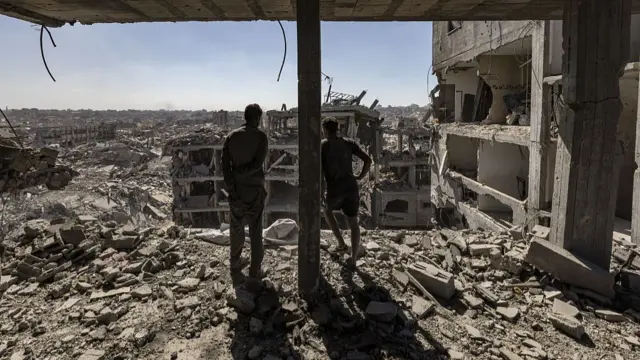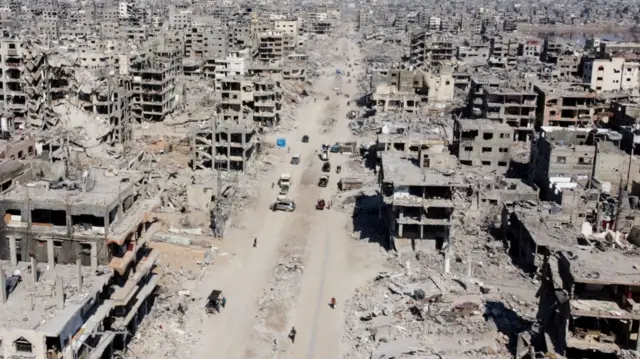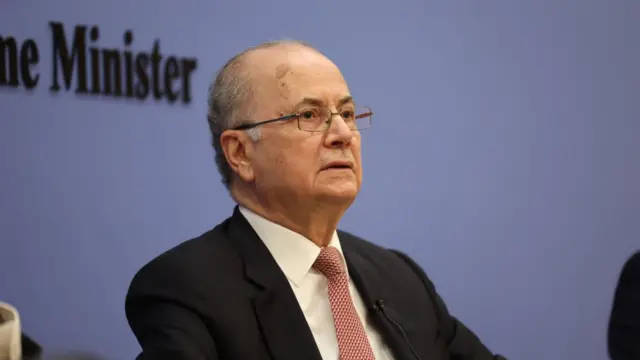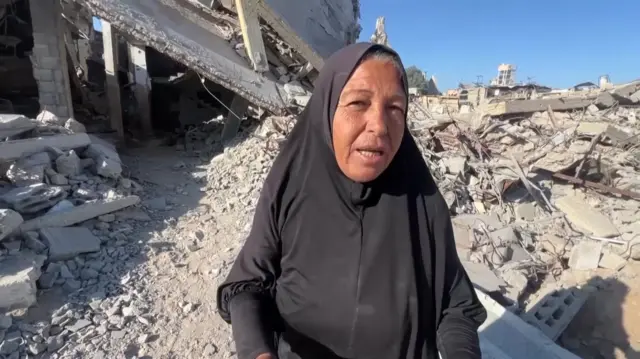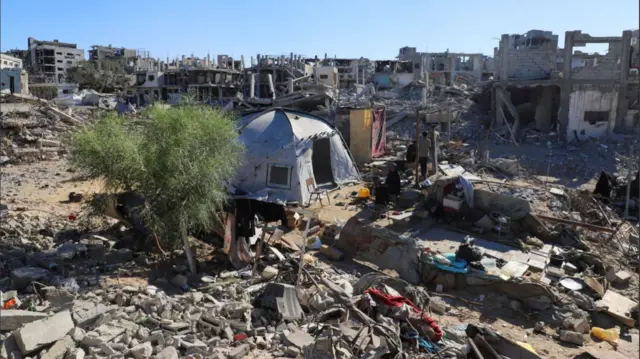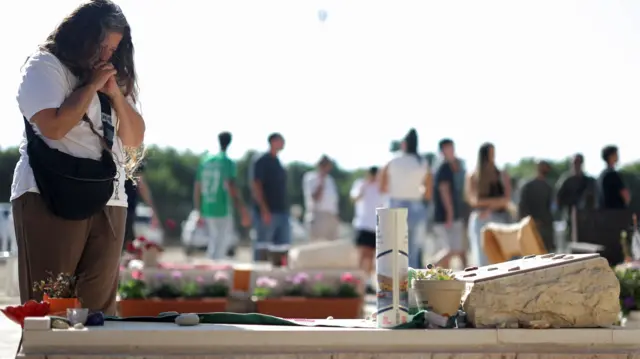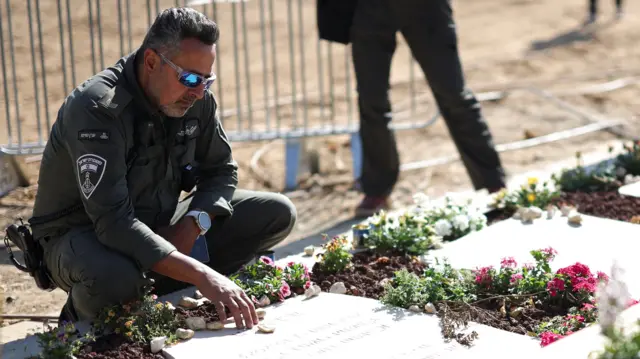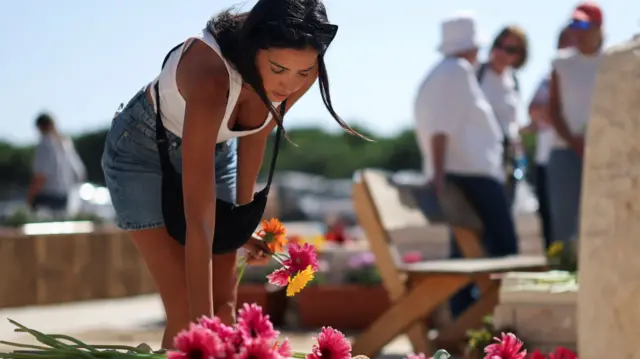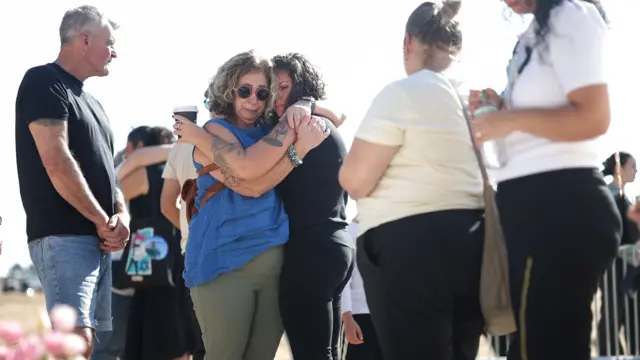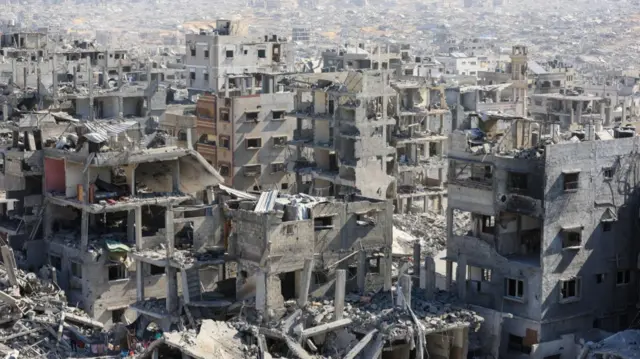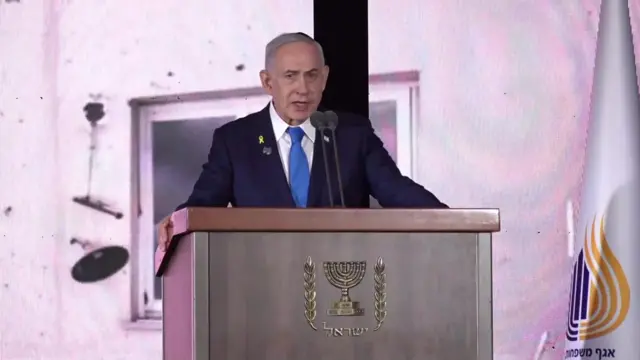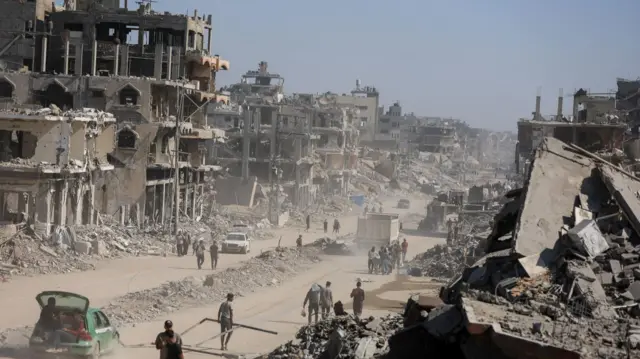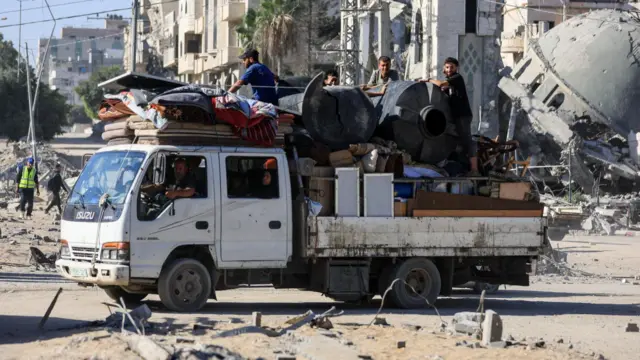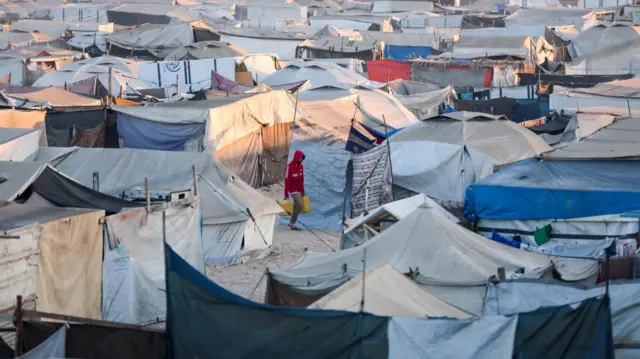Israel and Hamas at ceasefire impasse as return of dead hostages delayedpublished at 17:29 BST 16 October
 Adam Goldsmith
Adam Goldsmith
Live reporter
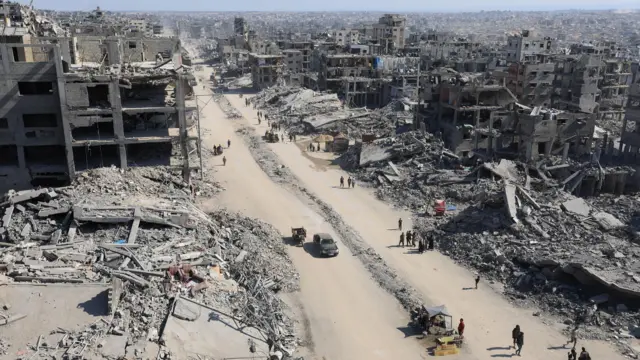 Image source, Reuters
Image source, ReutersThe US is downplaying threats to the longevity of Gaza's ceasefire as Hamas says it needs specialist equipment to find the 19 dead hostages' bodies that remain in Gaza.
Earlier today, Israel confirmed that Hamas had returned the remains of two Israelis - later identified as last female hostage Inbar Hayman, 27, and IDF soldier Muhammad al-Atarash, 39.
In accordance with the ceasefire deal that requires Israel to return the bodies of 15 Palestinians for every Israeli body, the remains of 30 Palestinians were then received in Gaza.
But now Hamas says it needs specialist equipment to find the remaining 19 Israeli bodies. The announcement was met with frustration from the families of hostages, who are calling on the Israeli government to stop the implementation of the next phase of the ceasefire until all remains are returned.
The US is insistent that Hamas will honour the ceasefire deal - and our Middle East correspondent writes that the text of the agreement concedes that the group might not be able to find all the bodies in the required timeframe.
In the meantime, the UN is calling for greater access to aid in the Strip, as its development programme says the focus now is on clearing roads across Gaza from debris and unexploded bombs.
Our Middle East correspondent has more on how Israel is making preparations for the Rafah crossing in southern Gaza to open while urging Hamas to make a "greater effort" to return the remaining deceased hostages.
We're closing our live coverage now, but we'll update our news story with any developments.

